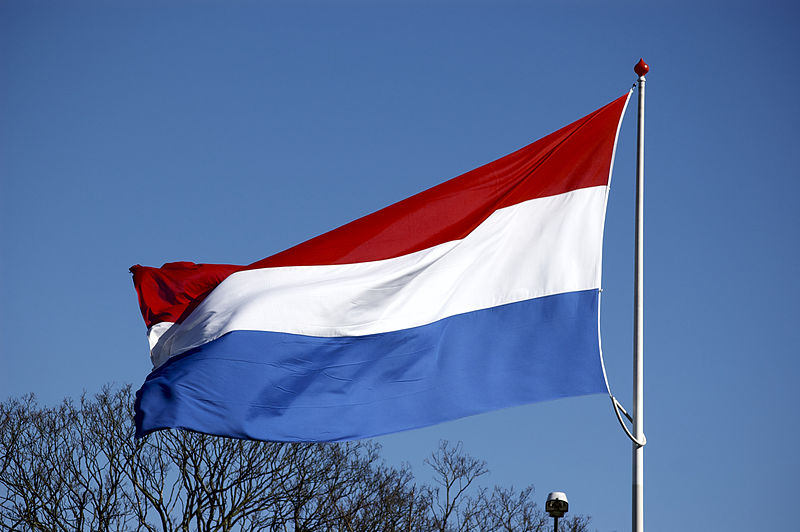
The Commission adopted its Partnership Agreement with the Netherlands, laying down the country's Cohesion Policy investment strategy worth €2 billion for the period
2021-2027. Cohesion Policy funds will promote in the Dutch regions economic, social and territorial cohesion and help implementing key EU priorities such as the green and digital transition. The funds will also support the country's competitive, innovative and sustainable growth, improve social inclusion and develop skills of people having difficulties integrating into the labour market.
An innovative, energy-smart and greener Netherlands
The Cohesion Policy funds will support the green transition. In particular, €240 million from the European Regional and Development Fund (ERDF) will contribute to increase the share of renewable energy sources, reduce energy consumption and greenhouse gas emissions in buildings and small and medium-sized businesses (SMEs). ERDF will also help replacing fossil fuel sources by renewables, in line with the REPowerEU objectives.
Moreover, €310 million will be dedicated to support research and innovation in SMEs and the transfer of knowledge to stimulate development and innovative ecosystems and smart specialisation.
€623 million from the Just Transition Fund (JTF) will help Dutch regions with large emission-intensive industrial clusters transitioning to a climate-neutral economy. For instance, due to the planned stop of natural gas production, the province of Groningen, which is particularly affected, will receive JTF support. JTF funds will be invested to safeguard and create jobs in businesses transitioning to climate neutrality and ensure up- and reskilling of the labour force to be ready to take up new jobs in the green economy.
Sustainable urban development close to citizens
9% of the ERDF will be dedicated to sustainable urban development and integrated investments based on ownership of the local communities in Amsterdam, Rotterdam, the Hague and Utrecht, for example, in the area of energy transition and circular economy.
Support for employment, skills and social inclusion
With more than €413 million, the European Social Fund+ will support people with difficulties finding and keeping a job by investing in training and re-training of workers. People will be supported through the development of basic, digital and other vocational skills, and through a broader set of social support measures. The ESF+ will also address child poverty by helping children going to school and participating in sport activities, will provide food and material aid for the most deprived and will invest in innovative measures to promote equal participation in the labour market, especially between men and women.
Sustainable fishery and aquaculture
The European Maritime, Fisheries and Aquaculture Fund (EMFAF) will invest about €98 million in a more sustainable fisheries, aquaculture and processing chain in line with the objectives of the European Green Deal. The entire programme has a strong focus on innovation, with particular emphasis on green transition/energy efficiency and CO2 reduction, consisting of technological research in cooperation between the sector and knowledge centres. The funds will also support ecological research and restoration in the North Sea.
Members of the College said:
Commissioner for Cohesion and Reforms, Elisa Ferreira, said: “I am happy to see that the Partnership Agreement with the Netherlands has been adopted. Cohesion Policy funds will support the Netherlands to strengthen its innovation capacities and to achieve its green transition. In the current context and the halt of Russian gas supply, the funds will also provide crucial investments for the Netherlands to speed up its energy transition.”
Commissioner for Jobs and Social Rights, Nicolas Schmit, underlined: “I welcome the Partnership Agreement with the Netherlands and am pleased to see a strong commitment to use the European Social Fund Plus to help people find or keep employment and develop their skills as well as to provide material aid to the most deprived people. In challenging times, this is a concrete example of solidarity.”
Commissioner for Environment, Oceans and Fisheries, Virginijus Sinkevicius, said: “Europe's blue economy plays a crucial role in decarbonising our economy. The European Maritime, Fisheries and Aquaculture Fund supports innovative projects that contribute to the sustainable exploitation and management of aquatic and maritime resources. This Partnership Agreement will allow the Netherlands to build a resilient, sustainable and low-carbon fisheries and aquaculture sector as well as to boost the digital transition of the sector and to manage its aquatic environment and resources sustainably.
Background
The Partnership Agreement with the Netherlands paves the way for the investments from the Cohesion Policy funds on the ground. It covers 16 programmes: 3 national (including the national JTF programme), 4 regional and 9 INTERREG programmes (including three cross-border cooperation programmes).
Each Member State prepares a Partnership Agreement in cooperation with the Commission. This is a strategic document for programming investments from the Cohesion Policy funds and the EMFAF during the Multiannual Financial Framework.
It focuses on EU priorities, laying down the strategy and investment priorities identified by the Member State. It also presents a list of national and regional programmes for implementation on the ground, including the indicative annual financial allocation for each programme. The Netherlands' is the tenth Partnership Agreement adopted for the 2021-2027 funding period, following those of Greece, Germany, Lithuania, Austria, Finland, Czechia , Denmark, France and Sweden. Photo by Wouter Engler, Wikimedia commons.



































